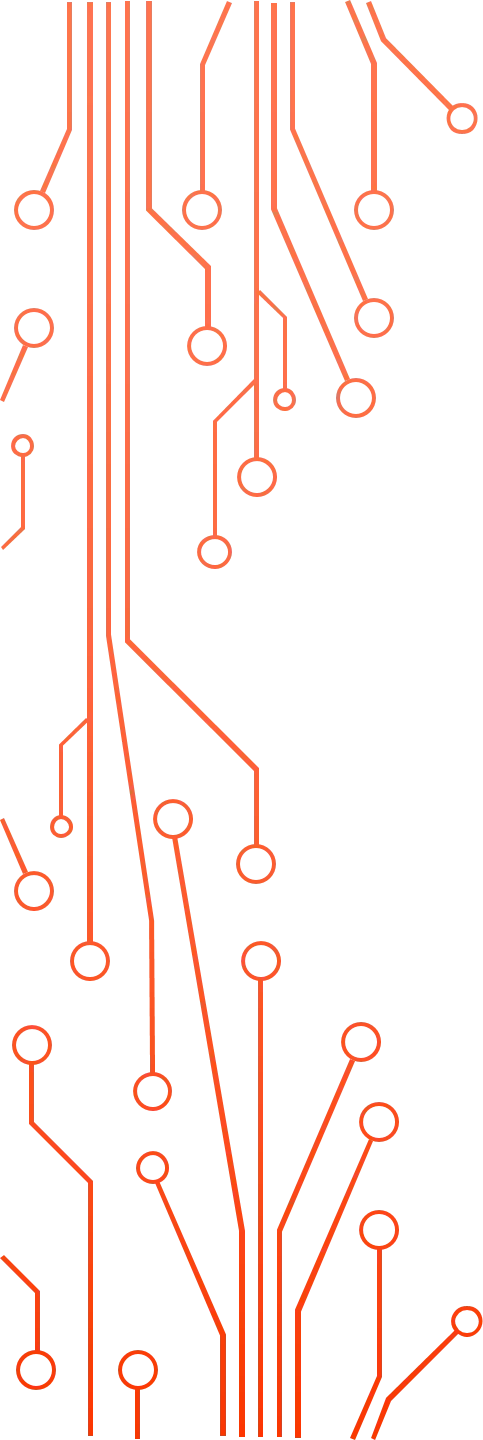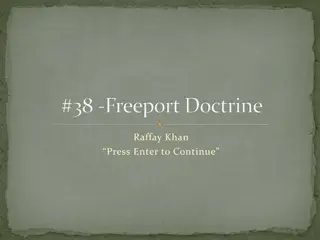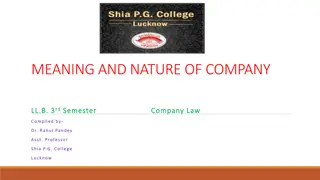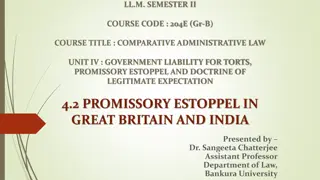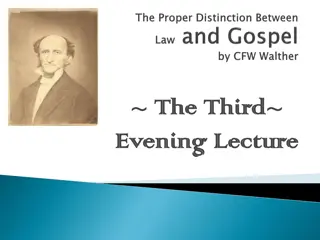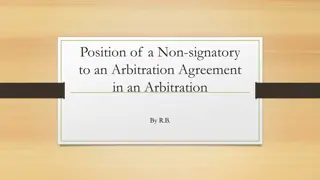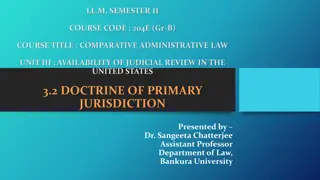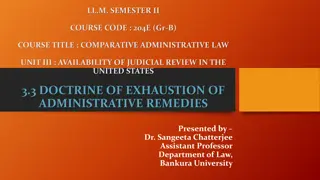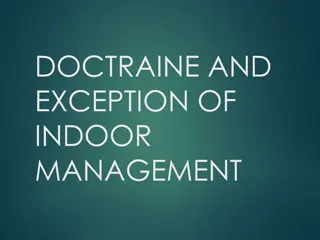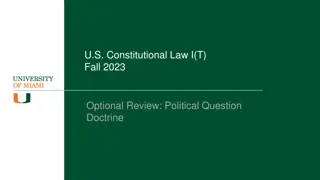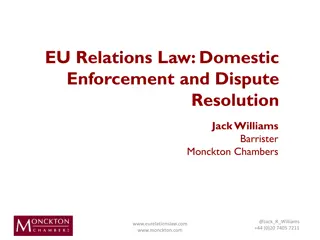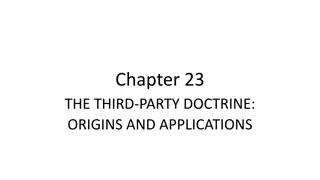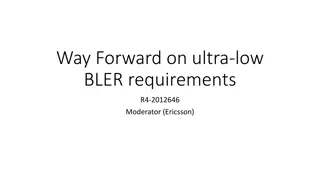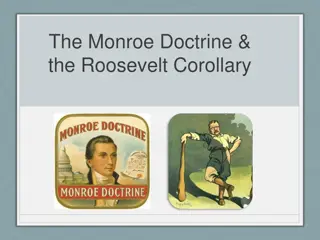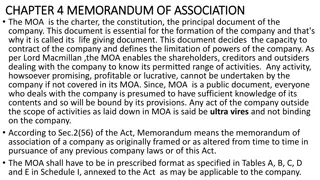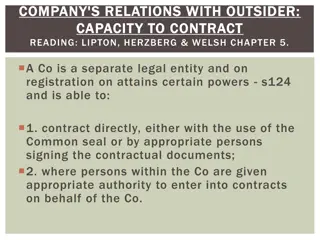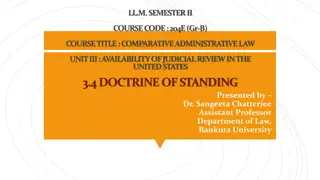Understanding the Doctrine of Ultra Vires in Company Law
The doctrine of ultra vires in company law pertains to acts that are beyond a company's legal powers or authority as stated in its memorandum of association. This concept categorizes acts as ultra vires the directors, articles of association, or the company itself, with implications such as void contracts and personal liability. Exceptions exist, such as ultra vires expenditure or contracts, which provide limitations to this doctrine.
Download Presentation

Please find below an Image/Link to download the presentation.
The content on the website is provided AS IS for your information and personal use only. It may not be sold, licensed, or shared on other websites without obtaining consent from the author. Download presentation by click this link. If you encounter any issues during the download, it is possible that the publisher has removed the file from their server.
E N D
Presentation Transcript
DOCTRINE OF ULTRA VIRES
MEANING : Ultra means beyond and Vires means Powers . In In other words ultra vires means beyond the powers . Literally means doing an act which is beyond the legal powers or authority of a company as laid down in the memorandum.
A COMPANY HAS THE POWER TO DO ALL SUCH THINGS: i. Which are essential for the attainment of its main object specified in the memorandum of association. ii. Which are reasonably and fairly incidental to the attainment of its main objects iii.Which are otherwise authorized by the Companies Act. If the company does any other act which is not covered by the above powers, that will be considered as ultra vires the memorandum.
THE ULTRA VIRES ACTS CAN BE CLASSIFIED INTO THREE CATEGORIES: 1.Act ultra vires the directors 2.Act ultra vires the articles of association 3.Act ultra vires the memorandum of association or the company.
Ashbury Rail Carriage and Iron Company Ltd.,V/s. Riche. Main object as stated in memorandum of association to manufacture, sell or hire all kinds of wagons, business of mechanical engineers and general contracts. Company entered into contract with (Riche), to provide finance to it for construction of railway lines in Belgium. But it was ultra vires
Judgment : upholding the contention of the company, court held that the above said contract did not fall within the ambit of the words general contractors and the contract being ultra vires, company was not bound by it.
EFFECTS OF ULTRA VIRES Contracts void Property acquired under ultra vires transaction. Injunction. Personal liability of Directors Breach of warranty of authority Ultra vires borrowing
EXCEPTION TO THE DOCTRINE OF ULTRA VIRES Ultra vires expenditure Ultra vires contract Ultra vires loan Ultra vires contract Ultra vires the company Ultra vires torts
DOCTRINE OF CONSTRUCTIVE NOTICE Any person dealing with the company is deemed to have the knowledge of the contents of these documents. This is known as the doctrine of constructive notice. Also known as Imputation of Knowledge as to the memorandum and articles.
DOCTRINE OF INDOOR MANAGEMENT: Under the doctrine of indoor management a person dealing with a company is not bound to enquire the internal procedures or formalities. He can presume that the company has complied with all the internal procedures properly. That means the rule of doctrine of indoor management is opposite to that of rule of constructive notice. The doctrine of indoor management protects the against the company whereas constructive notice protects the company against the outsiders.
EXCEPTION TO THE RULE OF INDOOR MANAGEMENT: 1. Knowledge of irregularities. 2. Negligence. 3. Forgery. 4. Acts outside the apparent authority. 5. No knowledge of articles.
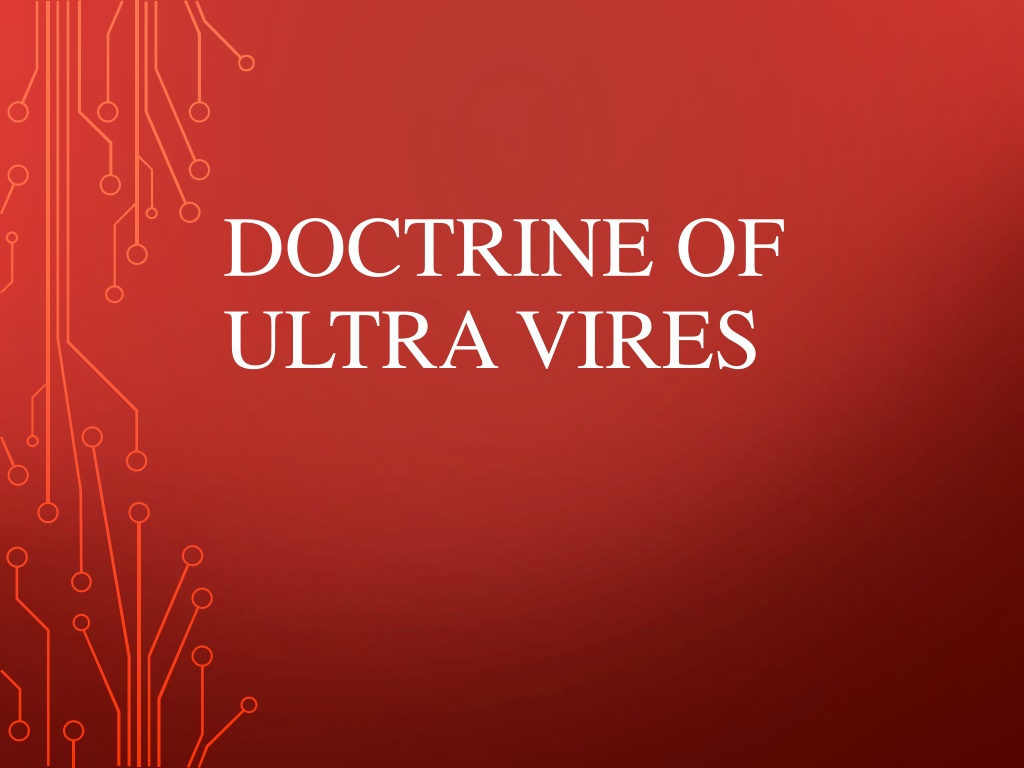
 undefined
undefined
